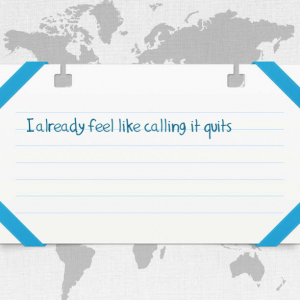CDC recommends booster shots for whooping cough outbreak. Courtesy of Fox News http://fxn.ws/PzurdE
I talked about Whooping Cough the other day but hadn’t realized just how bad things have gotten. More states have declared a Whooping Cough epidemic and majority of the USA has reported significant increases in cases. This is really scary. This is the article from Fox News. You can follow the above link for the original article.
If you thought whooping cough went the way of beriberi and other 19th-century diseases with fanciful names, think again. Whooping cough is back with a vengeance with the worse outbreak in the United States in 50 years, according to the Centers for Disease Control and Prevention (CDC). As of this month, 46 states have reported increases in cases compared with 2011.
The state of Washington has declared an epidemic with more than 3,000 reported cases. Since the start of July the total number of U.S. cases for 2012 has climbed from approximately 18,000 to 22,000, according to the CDC. The total reflects twice the number of cases seen this time last year. The reason, in part, is a drop in vaccination rates and, some speculate, a weaker vaccine.
The CDC and other health authorities recommend that older children, in particular, receive a booster shot before returning to school. Most adults need one, too. [5 Dangerous Vaccination Myths] Get a shot, spare a rib The aptly named whooping cough — known medically as pertussis (Latin for “thorough cough”) and colloquially as the 100-day cough — is a high-pitch, rib-cracking cough that can last for more than two months and is often fatal among infants.
Thirteen people, mostly children, have died so far this year from whooping cough in the United States, according to the CDC, and the situation will likely get worse The pertussis vaccine is largely effective in preventing the disease, and this usually is packaged in the United States as the DTaP vaccine, short for diphtheria, tetanus and acellular pertussis. The CDC recommends that children get five doses of this vaccine staggered between ages 2 months The good news is that primary coverage is rather high. The CDC estimates that 95 percent of U.S. children receive the first three doses, and about 85 percent get the fourth. (Data are lacking on the fifth dose.) The bad news is that 5 percent of children, or millions of individuals, are not vaccinated at all, for reasons that include moral objections to vaccines or poor access to healthcare.
These children are vulnerable to and potential carriers of the pertussis bacteria. “Individuals who are not vaccinated against whooping cough have eight times the risk of infection compared to people who are fully vaccinated, [and] vaccination rates have steadily declined over recent years,” said Heidi Renner, assistant professor of pediatrics at Loyola University Chicago Stritch School of Medicine. The combination of falling vaccination rates, lack of full vaccination, and waning immunity means that most Americans are vulnerable, Renner said. “Shockingly, only 8.2 percent of U.S. adults have received the recommended pertussis booster,” Renner told LiveScience. However, whooping cough’s steady resurgence is a bit of a mystery among doctors. In a letter published last week in the British Medical Journal, Douglas Jenkinson, a retired physician who studied the disease for decades, attributed the increase to better diagnosis and reporting.
And earlier this month in an editorial in the New England Journal of Medicine, James Cherry, a professor of pediatric infectious diseases at the David Geffen School of Medicine, University of California at Los Angeles, suggested that the current DTaP vaccine is weaker than the DTP vaccine used two decades ago. [7 Devastating Infectious Diseases] Cherry called the current vaccine a “failure” in his editorial, adding “it is time to recognize the successes of the past and to implement new studies and direction for the control of pertussis in the future.” Booster now crucial Nevertheless, vaccines are the best prevention against whooping cough. With the 2012 outbreak, the CDC is recommending that all children ages 11 to 12 years receive a DTaP booster. Adolescents and adults should consider the one-dose Tdap vaccine. This is a slightly different formulation of DTaP, but also for diphtheria, tetanus and Although approximately 300,000 people worldwide die annually from whooping cough, according to the World Health Organization, the disease usually isn’t deadly for most American adults. Nevertheless, if infected, you could transmit the disease to someone more vulnerable. Also, whooping cough is not something to take lightly or to simply soldier through as you would a tough winter cold. Children may miss weeks of school; adults may miss weeks of work.
And no lozenge will tame that painful 100-day cough.



